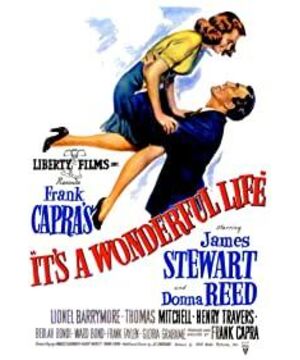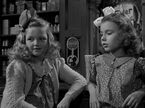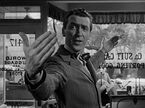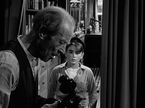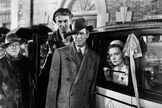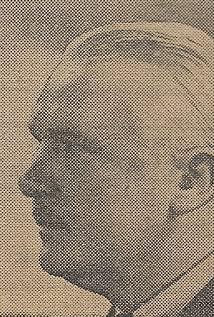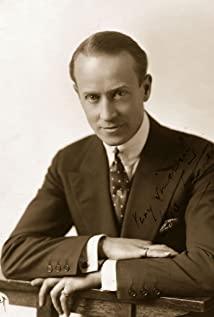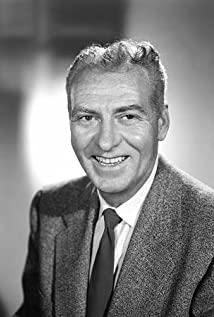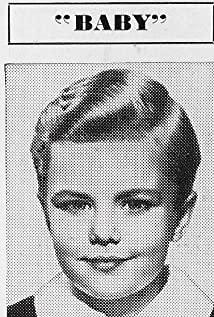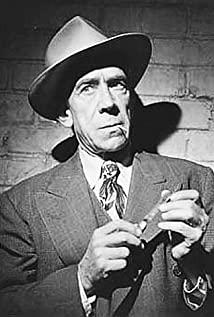George, a banker who has compassion for the poor, loves his wife and his family. In order to keep my bank so that I can lend to the poor to build houses, I took my honeymoon money to resolve a run; in order for my brother Harry to live happily, he gave up his dream of traveling around the world...
If you treat this movie as a warmth Looking at movies, tear gas, inspirational, and romantic movies, of course there is no problem at all. However, there is a deeper political meaning behind the film that is worth pondering. (Considering that "The Wizard of Oz" is a fairy tale with a gold standard, forgive me...)
-----------------Background and plot------------ ----------
The plot of the movie is based on the 1943 novel "The Best Gift". The shooting year was 1946. At that time, President Roosevelt passed away due to illness for a year, and the curtain on World War II has just been drawn. The transition from a war-time economy to a peace-time economy is painful, strikes in various industries are endless, and housing and other consumer goods are in short supply. This film can be said to have a strong atmosphere of the times, and the concept expressed in the film coincides with the policy orientation of the time. It is not too much to be regarded as a "main theme" film. The optimistic and positive attitude conveyed by the film itself is believed to be helpful to the reconstruction of American confidence after the war.
The villain in the film, the big banker Porter, is portrayed as a stingy and evil character; it sets off the protagonist Gao Daquan/Gao Shuaifu. Porter is rich and unkind. After receiving the $8,000 lost by Uncle Billy, he returned to the original owner and took a bite. However, his reason for refusing to lend to the poor in the town is also valid: he thinks those poor people don’t. Have the ability to pay debts.
On the other hand, the protagonist George has been upright and upright since he was a child. The younger brother Harry was skating and fell into a puddle. He rescued Harry, but he lost his hearing in one ear. Later, when he worked in a drugstore, his employer, Gore, put poison into a medicine bottle by mistake, but George found out in time. George originally planned to let Harry take over the family's banking business. He didn't expect Harry to find another job with his father-in-law after graduating from school. George "involuntarily" took over the family business and gave up his dream of traveling around the world... …
When the protagonist was overwhelmed by the bank inspector because of the shortage of 8,000 yuan, he thought of death. However, the Almighty God at the critical moment once again hindered the protagonist from using free will... He sent an angel down to the world and took George to observe the "world without George" (parallel universe!)-his brother fell into a puddle while skating. Drowned; Mr. Gore went to jail for loading the wrong medicine; Uncle Billy went to a lunatic asylum. Potter became a big monopoly, and the town had been renamed Pottersville from Bedford Falls.
So George changed his mind. Although the police had been waiting for him at his house, the people in the town had collected enough money to make up for the eight thousand yuan loophole, and everyone sang Auld Lang Syne in unison, and everyone was happy.
-----------------Summarize the central idea-----------------------
George represented in the movie He is an emerging small capitalist, and Porter is a traditional big capitalist. George once rejected Porter's generous salary terms, and at the same time avoided the Porter family's monopoly on the small town's financial industry. In addition, by lowering the loan interest rate, the majority of the housing loan market for the poor has been won. In addition, George's bank belongs to a private industry that does not receive government funding, so it is not very appropriate to say that the film is an endorsement of Keynesianism or the New Deal. I am more inclined to regard this film as Dickens's novel, as a capitalist society, Luthor's hardship.
Of course, since the film is full of leftists, it has naturally caused many criticisms of the film by rightists. Of course, the most exaggerated was the FBI's belief in 1947 that the film was a propaganda of communist ideology. The FBI report stated that Mr. Porter’s image was portrayed in the movie as a stingy "Scrooge-like" (see "A Christmas Carol" by Dickens), a miser, and spurned for everyone. This is a "typical co-propaganda style." .
But Capra has not been included in McCarthy's later "Hollywood blacklist", strange ah ......
----------------- ripped economics of light - ----------------------
In 1933, Franklin Delano Roosevelt (aka FDR) was elected President of the United States, with an overbearing Keynesian atmosphere. The United States is popular. One of the hallmarks of Roosevelt's New Deal is to increase government expenditures through large-scale national debt, and to lead the U.S. economy out of the quagmire of the Great Depression and World War II by increasing total social demand. One of the measures of the New Deal is to establish Fannie Mae as a government-sponsored enterprise to provide mortgage loans to low-income families. In 1970, Freddie Mac was established, and it was called the "two houses" together with Freddie Mac. Under the supervision/support of the US government, it provided loans to home buyers.
Of course, housing loans are not just a business operated by Liangfang. Private banks and financial institutions can also provide housing loans to customers. However, now that they have government backing (the U.S. government pays off the debts generated by their loans), the two rooms dare to take the risk of providing loans to users with poor credit and limited future solvency. Posner called this government-sponsored enterprise a "capitalist-socialist hybrid" (capitalist-socialist hybrid).
Similar to the previous industries such as aviation, railway transportation, truck freight, postal services, etc., these industries, which were originally called "government control", have gradually changed from the original regulated status to the regulator. In this process Chinese government officials have gradually changed from being managers to being part of interest groups, and even being constrained by commercial interests. This process is called "regulatory capture". When this process is completed, these officials will consciously or unconsciously seek benefits for the enterprises they manage when making decisions, even if these benefits do not coincide with social benefits.
Finally, in 2008, the accumulated problems of long-term provision of high-risk loans were hard to come back to. The two houses were unable to repay their own debts and were taken over by the US government for hundreds of billions of dollars. As many properties have depreciated, the taxpayer losses are incalculable.
In 2010, there was a blog called "It's a wonderful leftist life" (It's a wonderful leftist life). I won’t repeat the author’s complaints about this movie, but a link ( http://pajamasmedia.com/blog/its) -a-wonderful-leftist-life/?singlepage=true ), maybe the author is insinuating the current situation? do not know.
It's too far. Generally speaking, the movies are good-looking and the lines are all well written. If you learn English well and are infected by the director's economic thoughts, you will go too far. My level is limited, and this is not a film review, and I welcome you all.
Reference link:
IMDB-It's a Wonderful Life
http://www.imdb.com/title/tt0038650/
Wikipedia-It's a Wonderful Life
http://en.wikipedia.org/wiki/It%27s_a_Wonderful_Life
Wikipedia-Fannie Mae
http://en.wikipedia.org/wiki/Fannie_Mae
Wikipedia-Freddie Mac
http://en.wikipedia.org/wiki/Freddie_Mac
Wikipedia-Franklin D. Roosevelt
http://en.wikipedia.org/wiki/Franklin_D. _Roosevelt#Fourth_term_and_death.2C_1945
FBI Considered "It's A Wonderful Life" Communist Propaganda
http://www.wisebread.com/fbi-considered-its-a-wonderful-life-communist-propaganda
“Capture” of Regulators by Fannie Mae and Freddie Mac-Becker
http://www.becker-posner-blog.com/2011/06/capture-of-regulators-by-fannie-mae-and-freddie-mac-becker.html
Capture Theory and the Financial Crisis—Posner
http://www.becker-posner-blog.com/2011/06/capture-theory-and-the-financial-crisisposner.html
View more about It's a Wonderful Life reviews


